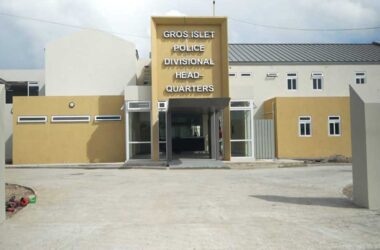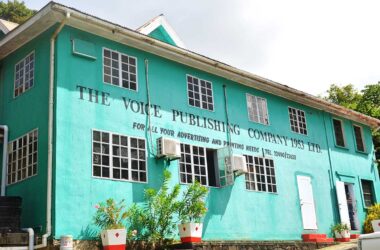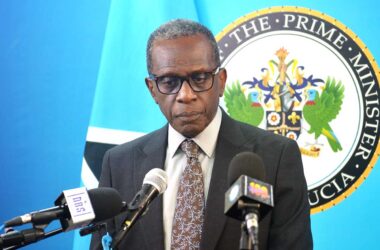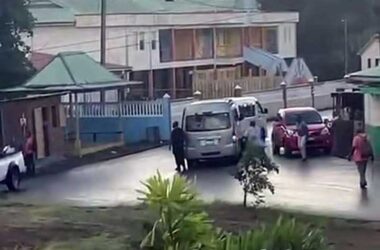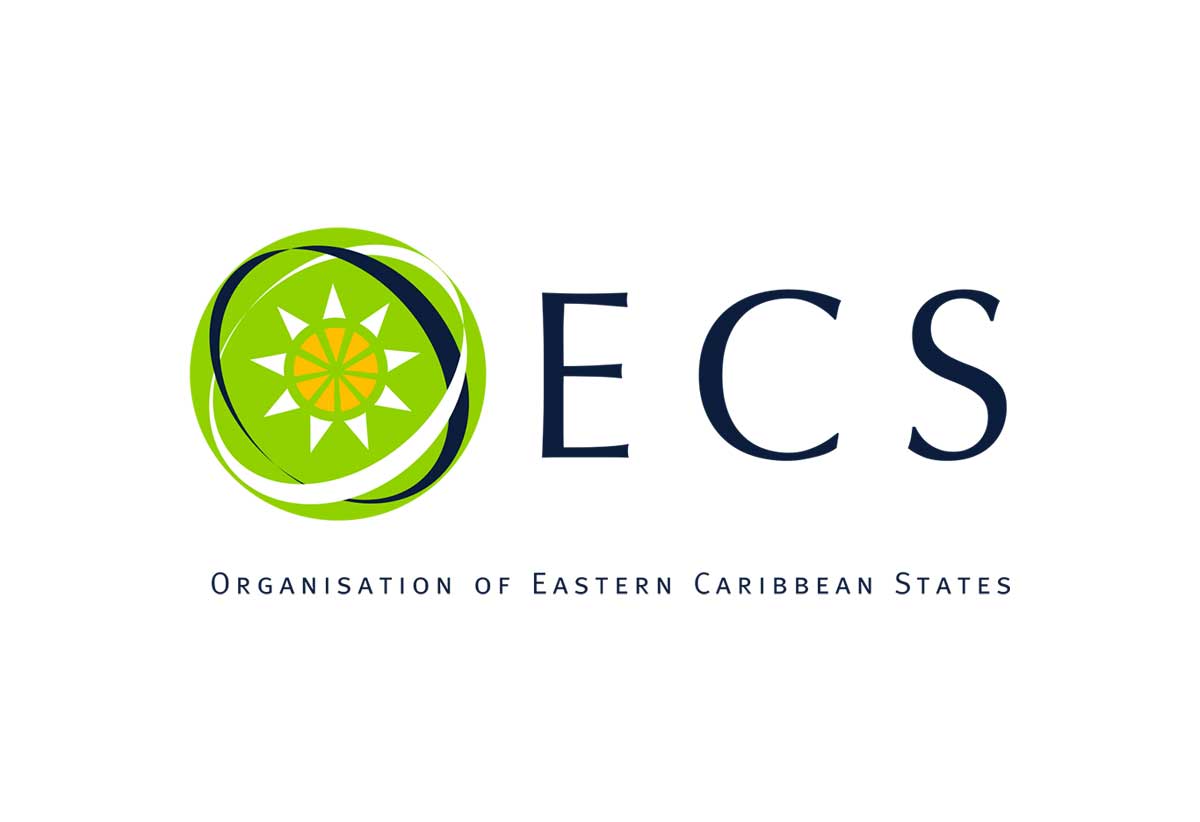
THE Organisation of Eastern Caribbean States (OECS) concluded its 10th annual meeting of the Council of Ministers on Environmental Sustainability (COM:ES) on July 13 in Anguilla under the theme “Positioning OECS SIDS for Accelerated and Sustainable Transformation.” In attendance at this milestone hybrid meeting were relevant Ministers, Elected Representatives and technical delegations from all eleven OECS SIDS, most of whom were in-person at the Aurora Resort’s conference room in Anguilla, joined by observers from several development partners, and supported by the team from the OECS Commission.
In opening the meeting, OECS Director General, Dr. Didacus Jules, reflected on the tension which exists in OECS Small Island Developing States between the vulnerabilities and opportunities, which he represented as the paradox of the “immovable object” versus the “irresistible force.” He observed that “In more recent times, these [vulnerabilities] have been exacerbated by multiple layers of crises … compounded by the actions and inactions of those who are allowing the needle to move from 1.5 to an almost inevitable 2.6 degrees Celsius of warming.” Dr. Jules reiterated, “What has kept us going and given SIDS a fighting chance is the ‘irresistible force’ embedded in our unity … and our resonance with aligned global partners, voices and actors.”
The Director General commended the stewardship of the outgoing Chair, Minister Carlos James of St. Vincent and the Grenadines, and challenged Minister Quincia Gumbs-Marie of Anguilla, as incoming Chair, to activate our full capacity SIDS through leadership and engagement across the whole of society. In accepting the challenge, Minister Gumbs-Marie expressed, “It’s my hope that our presence at this meeting, both in person and virtually, is a demonstration that we are firmly convinced that the peoples of the OECS Member States are entitled to a healthy, resilient and productive life in harmony with nature and that we are still committed to providing the leadership and direction necessary to make this their everyday reality.”
The main item of consideration during the plenary and caucus sessions was the COM:ES Road Map to 2030, which was deliberated and approved to chart the regional agenda and priorities for Environmental Sustainability to the end of the decade, and guide the work of the OECS Commission, Member States, and Partners operating at the regional level. Ministers agreed to play a more dynamic and intentional role in setting and driving the agenda for COM:ES and reached a consensus on specific priorities which align with the six thematic areas of SGD 2040, with identified Ministerial champions, as follows:
Climate and Disaster Resilience (Adaptation, Loss and Damage, Climate Finance and Carbon Markets, and Low Carbon Development and Climate Mitigation) – championed by Saint Lucia;
Biodiversity and Ecosystems (Access and Benefit Sharing, Ecosystem Assessment, Valuation and Development, Invasive Alien Species such as Sargassum, and Ecosystem Restoration) – championed by Guadeloupe;
Land and Water (Integrated Water Resource Management, and Sustainable Land Management – with considerations for Sustainable Agriculture and Climate-informed Land Use Policies and Plans) – championed by Anguilla;
Chemicals, Pollution and Waste (with a focus on a Circular Economy approach, and Marine Pollution – including plastics) – championed by Martinique;
Ocean Governance and Fisheries (Marine Spatial Planning, including Maritime Boundary Delimitation, Sustainable Fisheries Management, and Marine Research) – championed by Antigua and Barbuda;
Sustainable Energy (with a focus on Affordability, Access, and Just Transitions, and Linkages to other development area) – championed by Commonwealth of Dominica.
In support of this agenda, the meeting endorsed the establishment of five standing Committees to be led by respective Ministers over a two-year term, with the support of relevant Technocrats and Partners:
MEA and Regional Strategies Progress Monitoring – Grenada
Stakeholder Engagement – Saint Kitts and Nevis
Information and Networking – Montserrat
Mobilisation of Resources and Partnerships – Antigua and Barbuda
Cross-Sectoral Linkages – Anguilla
Other notable elements of the approved Road Map, which was drafted with the insightful assistance of former COM:ES Minister and OECS Sustainable Development Director, Dr. James Fletcher, include: Implementation of a Sustainable Financing Mechanism, with regional capacity to support development and mobilization of projects; Establishment of Ministerial peer-to-peer networks; Commissioning of quinquennial State of the Regional Environment Assessments; Building and sustaining the Regional Environmental Information System; Initiating a new programme of Research and Innovation, including collating of relevant indigenous and traditional knowledge; Commencing a process of broad stakeholder engagement and awareness.
The meeting also considered and endorsed multiple regional frameworks and initiatives which align with the Road Map themes and priorities. These included: A Needs-Based Climate Finance Strategy, and complementary Carbon Alliance; an OECS Model on Plastic Waste Separation, Collection and Treatment; A Coordination Mechanism for Sargassum (through Guadeloupe); and a Biodiversity Research Centre (through Martinique).
With the upcoming and consequential fourth International SIDS Conference during May 27-30, 2024, the Council of Ministers affirmed support for Antigua and Barbuda as the host of the Conference and reaffirmed the need to maintain the status of the particular circumstances of SIDS and the momentum on a Multidimensional Vulnerability Index (MVI). Ministers committed to actively engage in preparations and to monitor the outcomes, with St. Vincent and the Grenadines selected as the ministerial-level Champion to guide and manage the process, and welcomed Antigua and Barbuda’s aspiration to be a Centre of Excellence for monitoring progress on the implementation of the new SIDS agenda.
In the tradition of previous Council of Ministers meetings, COM:ES 10 also facilitated the Partners’ Springboard as a platform for engaging regional and international actors to support the regional agenda. This year’s Springboard was coordinated by the Euroclima mechanism, taking a profoundly more collaborative and integrated approach to favour synergies and sustainability. The partners’ contributions showcased the landscape of initiatives across four focused areas aligned with the theme of COM:ES 10 and in support of the Road Map to 2030: Accelerating the Environmental information ecosystem; Facilitating a whole of society approach; Unlocking and leveraging available resources; and promoting and scaling best and proven practices.
Ministers, in welcoming and commending the significant contribution of Partners, noted the negative impact of capacity constraints on mobilisation, adoption and implementation of initiatives at the national and regional levels, and called on Development Partners to make adequate financial provisions to address these constraints, including human capacity, in support of Member States and the Commission.
The OECS Commission was pleased to mark this milestone 10th meeting by hosting an Environmental Sustainability Exhibition in collaboration with the Government of Anguilla and partners such as GIZ, CCRIF-SPC, and PIRAC – Croix-Rouge Française, showcasing several initiatives currently or recently implemented in OECS Member States, along with best practices of the host country. Students and persons from the public visited the exhibition during the three days (July 11-13) and interacted with delegates, partners, and ideas from across the region.
The COM:ES10 meeting climaxed with a field trip to multiple locations, including Meads Bay Pond, Sandy Ground, Island Harbour and Rogers Well, facilitated by the Anguilla National Trust and the Department of Natural Resources. The Ministers, with their delegations and Partner representatives, experienced vivid exhibits of innovative and successful environmental conservation and management initiatives and approaches being implemented on the island, along with some of Anguilla’s natural beauty, and unmatched hospitality.
In speaking to the overall engagement and organisation of this Council of Ministers, veteran COM:ES Minister and senior regional statesman, Sir Molwyn Joseph of Antigua and Barbuda commended the success of COM:ES10 describing it as perhaps “the best ever.”



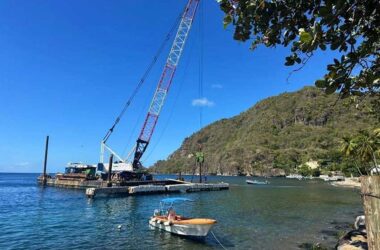
![John Paul Estephane, Minister in the Ministry of Tourism and Commerce [Photo Credit: GOSL]](https://thevoiceslu.com/wp-content/uploads/2026/01/John-Paul-Estephane-380x250.jpg)
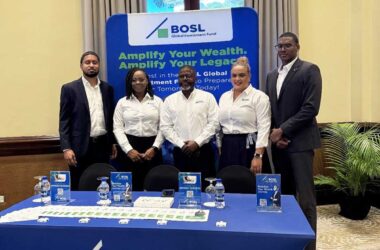
![DIPT-RESDP SAP graduating class [Photo credit : GOSL]](https://thevoiceslu.com/wp-content/uploads/2026/01/DIPT-RESDP-SAP-graduating-class-1-380x250.jpg)

